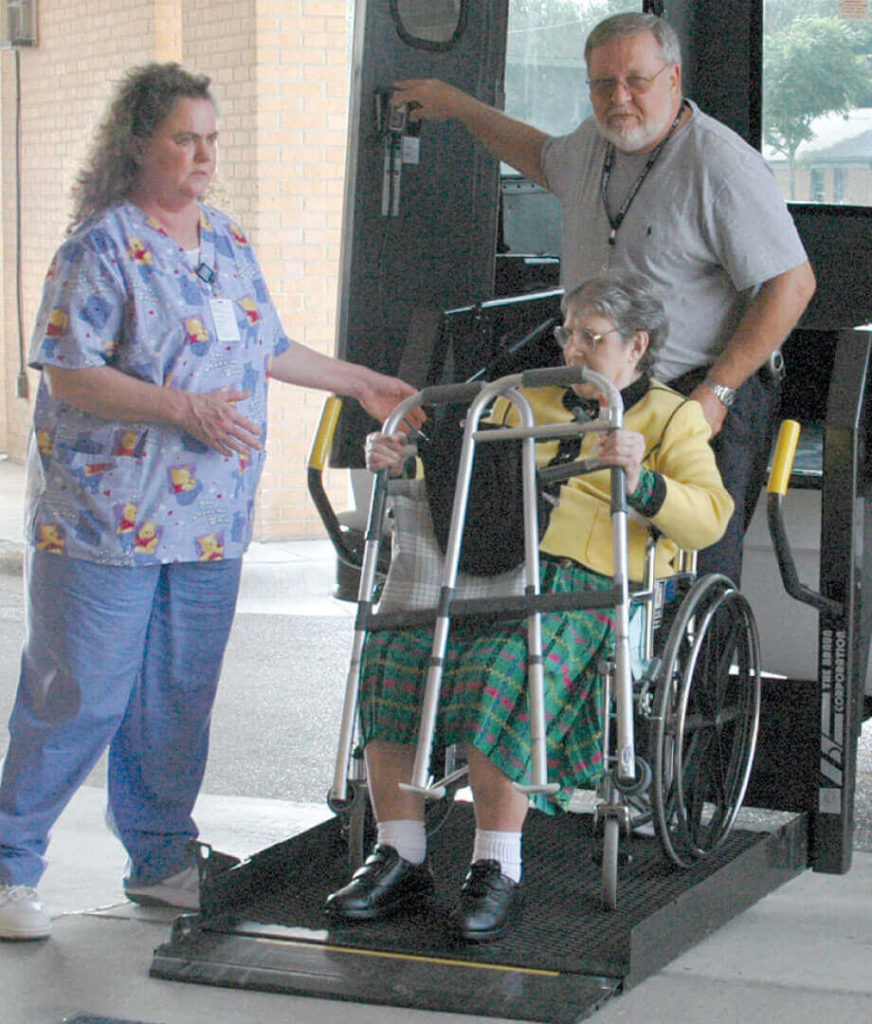by Patricia D. Nanoff

I taught students working toward two-year, health care degrees for many years. Health care is familiar territory to me, yet when my father moved into a nursing home after suffering his third stroke, I found myself in a landscape bleak and unfamiliar.
Dad exhausted his resources quickly and needed county assistance to remain in a facility. His county-funded bed in an unbeautiful little nursing home on a busy street in a first ring suburb had seen better days. My sister called it Crestfallen Acres.
The help my father needed with personal tasks insulted his sense of privacy. Wheelchair bound, he spoke and swallowed with difficulty. Reading was impossible without assistance from a family member or friend. He became increasingly dependent on my mother for emotional support. Then she died, and I took over her habit of daily visits.
One evening as I reached Dad’s room, his nurse was there on her evening rounds. She knelt next to his wheelchair, held his hand, leaned in, and spoke softly. The harsh overhead lights had been switched off; his reading lamp lighted their conversation. She looked like a guardian angel, inquiring about every bruise and sore spot.
My father leaned toward her and gave her his full attention, answering clearly and with a serenity he rarely showed to us. This healing encounter completely enveloped him.
The nurse had not seen me. She was making her day longer and more arduous by taking this time simply to be with her patient. I witnessed the care so critical to my father’s well being in better hands than mine. Standing at the doorway to my father’s last days, I glimpsed a moment of sacred presence within the harsh landscape of sickness and loss — a blessing beyond speaking.
- Identify a quiet soul in your life who communicates God’s grace and presence.
